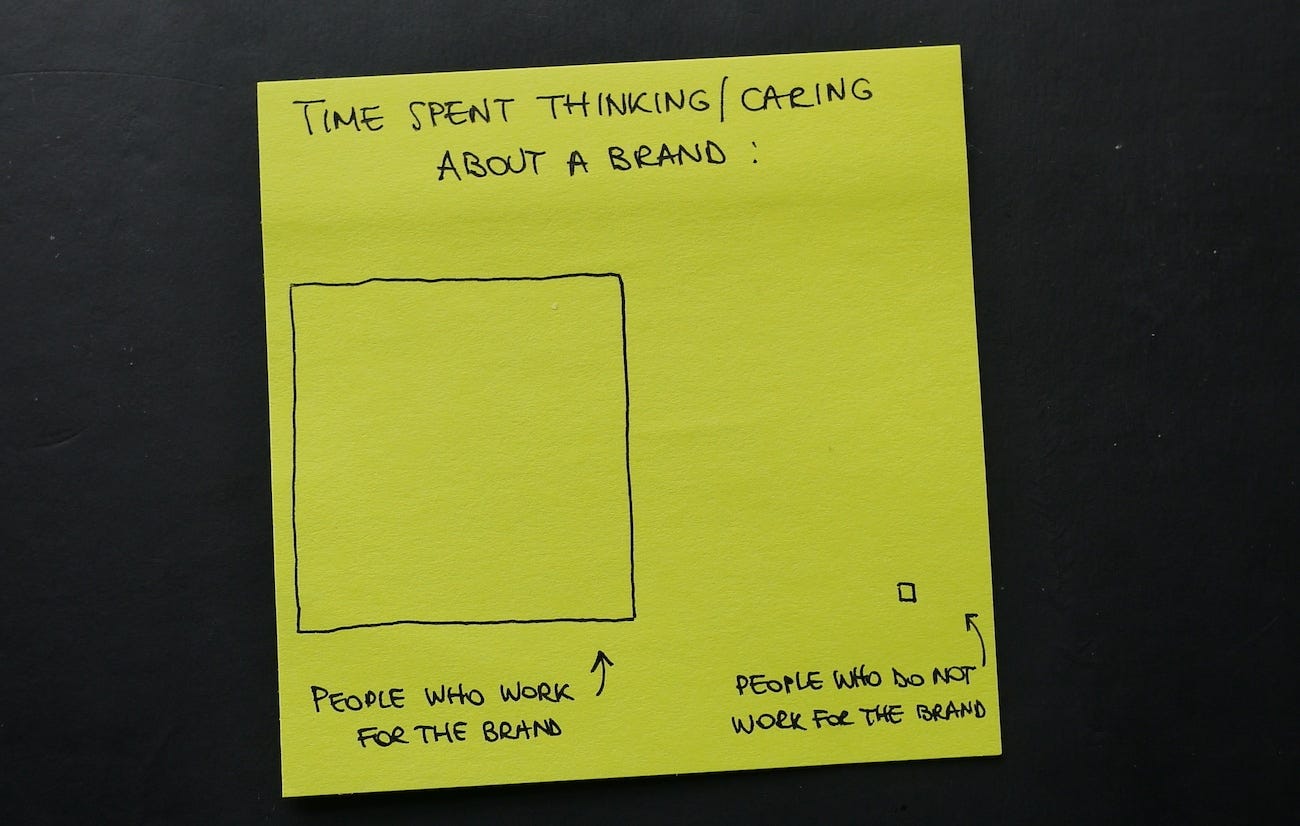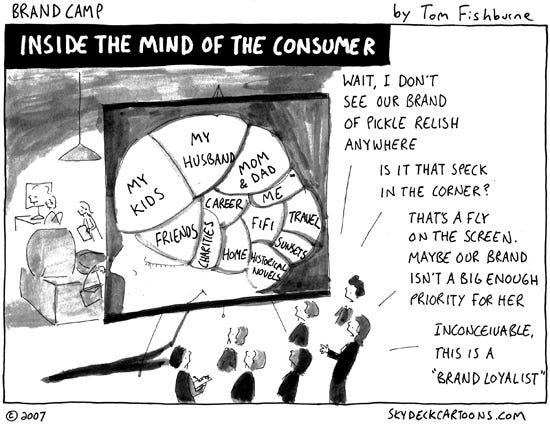You are reading contentfolks—a fortnightly blend of sticky notes, big content ideas, and small practical examples. Thank you for being here! ~fio
Hey there 👋
When’s the last time you were having a nice time with folks you love, enjoying a day out, or happily practising your favourite hobby when all of sudden you found yourself thinking fondly of a brand and wondering what it’s been up to?
I’m 93% sure the answer is never.
Your perception is skewed
If you’re reading this newsletter, you probably spend a significant amount of your time thinking about the brand(s) you work with. You have in-depth knowledge of the audience, are fluent in the right tone of voice, know intricate product details, and can identify it among competitors without even thinking…
…but because you are so deeply immersed in all of the above, your perception becomes skewed. Slowly but inevitably, you start assuming that your work will be met with the same interest and enthusiasm you put into it.
It won’t.
There’s a hard truth you, as a marketing person, must face: all brands are of low interest to most people most of the time. Including the one(s) you own or work for, no matter how special or great or unique you think it is.
People are interested in their families, friends, jobs, weekend plans and celebrity gossip - not brands or products. Occasionally, they may rouse themselves to consider which wine to buy for a special dinner. Or which mobile phone to buy for a teenage daughter’s birthday. And everybody has a few purchases they’re unusually picky about - a passion for shoes maybe. But most of us don’t devote much brainpower to buying anything. We’ve got too many other important or interesting things to think about. 1
Here is an accurate scientific illustration of the phenomenon:
Facing this fact can be disheartening, but it can also turn you into a sharper practitioner. Once you know that the thing you work on for days will be consumed distractedly in ~5-10 minutes and then quickly forgotten, you understand the urgent need to:
Make your work distinctive enough so it stands out in an ocean of sameness 2
Evoke an emotional response in folks who stumble upon your brand accidentally, so they might (might!) remember you in the future
Position your brand as the no-brainer choice when someone actively goes looking for it
💡A few practical examples💡
At Postmark, I’m lucky to work with a brand known for being helpful, human, and occasionally downright weird. There are infinite ways our team can lean into these attributes to stand out, and here are some of my favourites:
This webcomic explains dunning emails in a way no other email-focused company ever has ↓
This video series brings the ‘aaaaw’ factor to the technical and (dare I say) extremely boring topic of email authentication ↓
This alternatives listicle does what similar pieces never do: it addresses its bias explicitly, which in turn positions Postmark as a trustworthy choice ↓
I could offer you more examples, but you get the point. Our team knows that the vast majority of people will never think about Postmark as much as we do; and because we know it, we focus on creating distinctive work they might remember and recognise us by.
The more you live and breathe your brand and think about its target customers, user personas, and market segments, the more you run the risk of forgetting that real people out there don’t have much time, desire, or inclination to think and care about any of this very much.3
But don’t let this deter you! Building a brand is a slow and long process, and if anything, this knowledge should light a new fire under you. Now that you know, what are YOU going to do differently? 🔥
From Les Binet and Sarah Carter, “How not to plan: 66 ways to screw it up.” I don’t know why this book isn’t more famous; if you are into brand strategy, it’s full of useful advice. Also, it’s funny! Here is the introduction:
“To be honest, we’re not fans of ‘business books’. Like you, no doubt, we have shelves full of them. Most we’ve not finished. Many we’ve not even started. None are actually used.”
I feel seen.
For example, thinking specifically about content and SEO: this piece about copycat content was written by the always brilliant Ryan Law in 2019, but I don’t know that much has changed—if anything, this ChatGPT/Bard/AI situation we’re in might make things worse for a while longer.











I needed this. Thank you :)
Love this... although I came to read it a little later than when it was posted.
Just curious, the video - how long does it take to create?